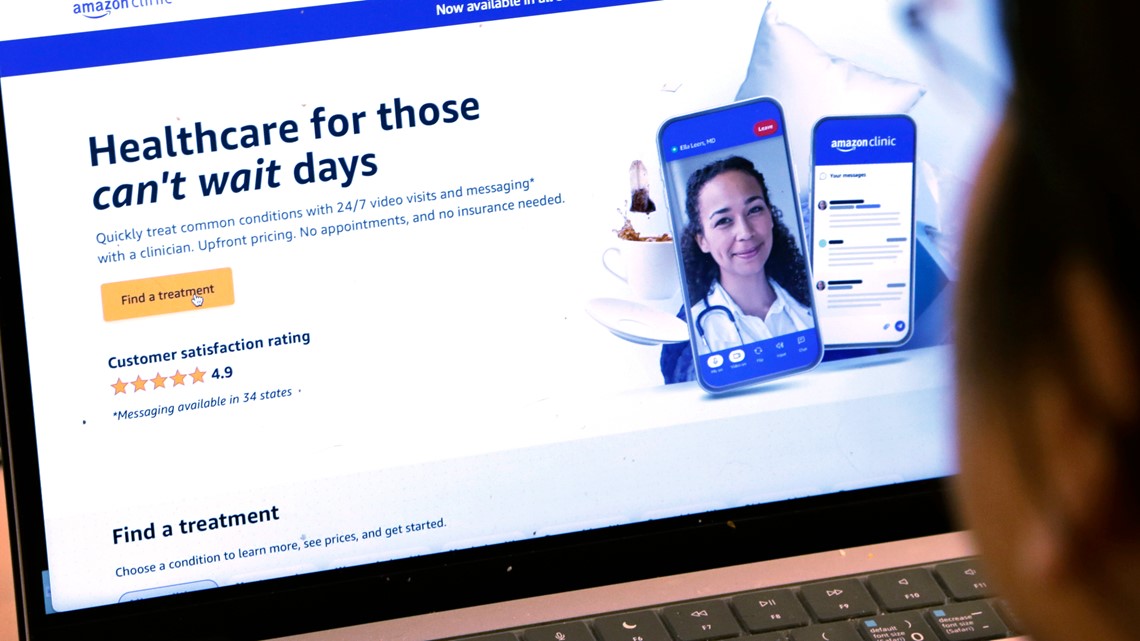Amazon said messaging-based consultations cost $35 on average while video visits cost $75. The clinic doesn't accept insurance.
NEW YORK — Amazon is adding video telemedicine visits in all 50 states to a virtual clinic it launched last fall, as the e-commerce giant pushes deeper into care delivery.
Amazon said Tuesday that customers can visit its virtual clinic around the clock through Amazon’s website or app. There, they can compare prices and response times before picking a telemedicine provider from several options.
The clinic, which doesn’t accept insurance, launched last fall with a focus on text message-based consultations. Those remain available in 34 states. The new video telemedicine option also will be available in Washington, D.C.
Virtual care, or telemedicine, exploded in popularity when COVID-19 hit a few years ago. It has remained popular as a convenient way to check in with a doctor or deal with relatively minor health issues like pink eye.


Amazon says its clinic offers care for more than 30 common health conditions. Those include sinus infections, acne, COVID-19 and acid reflux. The clinic also offers treatments for motion sickness, seasonal allergies and several sexual health conditions, including erectile dysfunction.
It also provides birth control and emergency contraception.
Chief Medical Officer Dr. Nworah Ayogu said in a blog post that the clinic aims to remove barriers to help people treat “everyday health concerns.”
“As a doctor, I’ve seen firsthand that patients want to be healthy but lack the time, tools, or resources to effectively manage their care,” Ayogu wrote.
Amazon said messaging-based consultations cost $35 on average while video visits cost $75.
That's cheaper than the cost of many in-person visits with a doctor, which can run over $100 for people without insurance or coverage that makes them pay a high deductible.
While virtual visits can improve access to help, some doctors worry that they also lead to care fragmentation and can make it harder to track a patient's overall health. That could happen if a patient has a regular doctor who doesn't learn about the virtual visit from another provider.
In addition to virtual care, Amazon also sells prescription drugs through its Amazon Pharmacy business and has been building its presence with in-patient care.
Earlier this year, Amazon also closed a $3.9 billion acquisition of the membership-based primary care provider One Medical, which had about 815,000 customers and 214 medical offices in more than 20 markets.
One Medical offers both in-person care and virtual visits.
Anti-monopoly groups had called on the Federal Trade Commission to block the deal, arguing it would endanger patient privacy and help make the retailer more dominant in the marketplace. The agency didn’t block the deal but said it won’t rule out future challenges.
That deal was the first acquisition made under Amazon CEO Andy Jassy, who took over from founder Jeff Bezos in 2021. Jassy sees health care as a growth opportunity for the company.
AP Business Writer Haleluya Hadero contributed to this story from New York. Murphy reported from Indianapolis.
.png)









 English (US) ·
English (US) ·